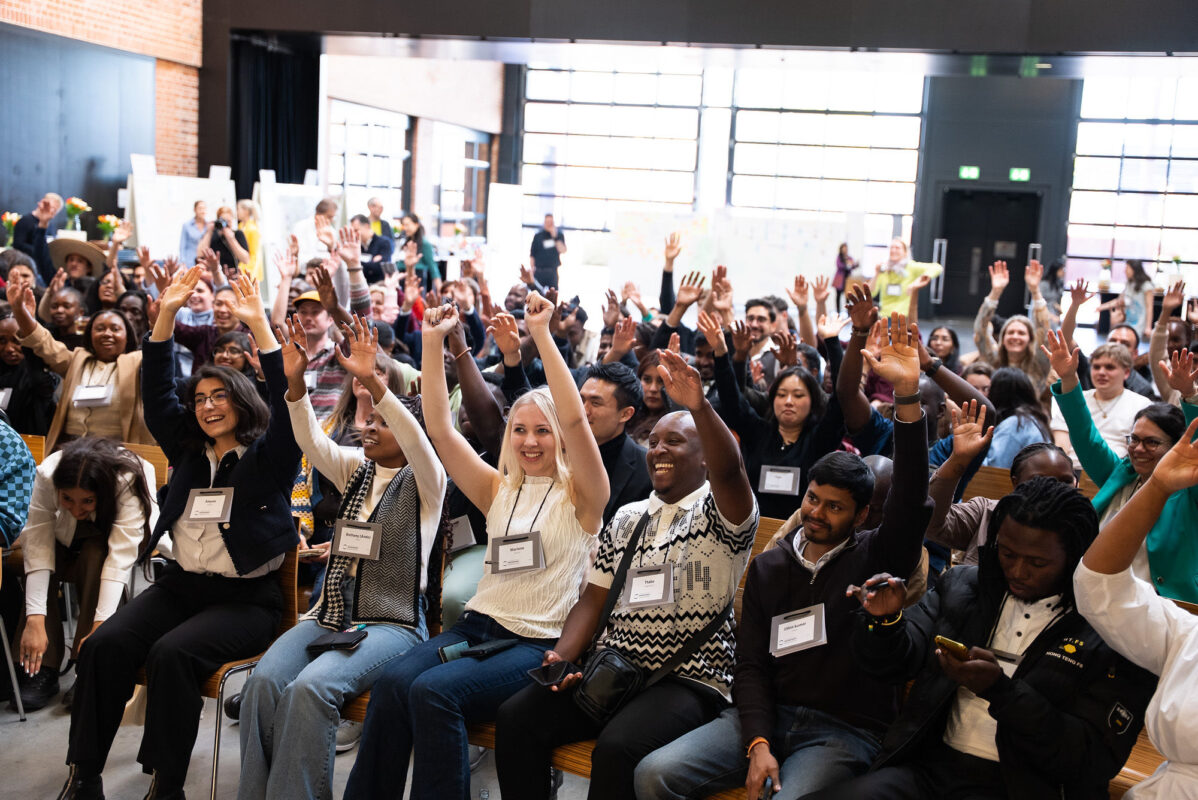Cotton Mills to Carbon Goals: Manchester’s Retrofit in Building Careers and Sustainability

Neil examines how Manchester’s green economy initiative, spearheaded by Mayor Andy Burnham, tackles both climate change and workforce development. He explores the crucial role of education in preparing students for emerging green careers while addressing urgent environmental challenges.
Burnham’s Call to Burn Bright
At the recent Greater Manchester Green Summit, I was intrigued to listen to Manchester’s Mayor Andy Burnham deliver his keynote on the green economy in which he spoke passionately about the urgent need to prepare young people in the region for ‘green careers’ by developing the right skills. The event and Burnham’s message reinforced Manchester’s ambition to be a leader in the green industrial revolution, just as it was the birthplace of the original Industrial Revolution, version 1.0.
This time, however, the focus is on creating sustainable solutions to address and redress the ecological challenges we face today.
One key sector Burnham discussed is retrofitting homes, a crucial part of Greater Manchester’s ambitious goal to be carbon-neutral by 2038. To me this showed that there is a double benefit of the green agenda – it’s about addressing the impact of climate crisis and about equipping the next generation for the jobs of tomorrow, which will be dramatically different from those of today.
For educators, it’s essential to understand how the world of work is shifting and ensure that schools prepare students for this transformation. The green economy represents a golden opportunity, but it also poses challenges that schools, employers and parents must address together.
The Rise of Green Jobs: A Defining Shift
Manchester is an interesting place to witness the cycle of rapid industrial evolution, where AI and quantum computing meet sustainability in what some are calling “Industrial Revolution 6.0.” While this high-tech vision seems tailored to Silicon Valley, its implications for places like Manchester are profound – especially given Andy Burnham’s observation that two-thirds of the city’s population doesn’t attend university, a figure likely to grow.
Green jobs, defined by the UK Government as roles ‘that contribute to preserving or restoring the environment’, are becoming critical across industries like agriculture, energy, and manufacturing. These roles range from ‘wind turbine technicians’ and ‘heat pump engineers’ to ‘green construction managers’ and ‘environmental scientists’. However, despite growing demand and a huge increase in the past decade, green jobs still account for just 3.3% of total UK job postings in 2024, according to PwC’s Green Jobs Barometer. Added to this, growth is uneven, with London dominating the market while northern regions lag, emphasising the need for targeted local investment in skills’ development and for local schools and businesses to collaborate on targeted upskilling efforts.
Burnham’s MBacc programme is one example of how Manchester is addressing this imbalance, offering young people clear pathways to employment by showcasing opportunities at 14 and 16. As industries pivot to align with sustainability goals, schools and businesses must collaborate to ensure the workforce is ready to meet the challenge and seize the opportunity of the green revolution.
The Potential Skills’ Gap: Emerging Trends and Demands
The World Economic Forum (WEF) highlights that the future of work globally will be driven by sustainability and technology, with roles like AI specialists, agricultural technologists, and clean energy engineers taking centre stage. Yet, a global skills gap threatens this transition, as many emerging green jobs require advanced technical expertise that current education systems struggle to provide.
Initiatives such as T-levels are starting to bridge this divide by offering placements in high-demand sectors like retrofit engineering, crucial for carbon-neutral goals. Retrofitting- the upgrading of buildings to enhance energy efficiency – is a key area, with roles like ‘retrofit coordinators’ commanding salaries of up to £40,000 annually.
To prepare students for these opportunities, schools must embrace forward-thinking curricula which integrate green skills and digital literacy, equipping young people not only for today’s workforce but also for the careers of tomorrow.
Barriers to Green Careers
While opportunities in the green economy are expanding, several barriers hinder young people from pursuing green careers. One of the most pressing issues is a lack of awareness among parents, teachers, and career advisers of meaningful and lucrative roles. For example, Greater Manchester alone currently has 471 unfilled vacancies for ‘retrofit coordinators mentioned above. Many adults still see traditional career paths as safer or more prestigious, inadvertently steering students away from the green economy. ‘Twas ever thus, but nowadays the market is very fast-moving.
Additionally, the terminology around green careers can be confusing. Afterall, what exactly does a “retrofit coordinator” or “sustainability officer” do? This jargon can feel abstract or intimidating to teenagers and anathema to parents. To combat this, schools and companies must collaborate to demystify green roles, showcasing them as tangible, exciting, and impactful careers. At the Summit, it was suggested that experts from businesses should ‘train the careers advisers’ in the new pathways.
So, What Can Schools Do?
Schools have a pivotal role in addressing these challenges and helping students take advantage of these opportunities. Here are some actionable steps:
| Update Career Guidance | Careers advisers should receive practical training on emerging green sectors to provide students with accurate, up-to-date advice. Platforms like Greater Manchester’s Beeline and the MBacc connect students to local job opportunities, but schools need to actively promote these tools. |
| Embed Green Skills in the Curriculum | STEM subjects are natural fits for teaching green skills. However, even non-STEM subjects can incorporate sustainability themes. For instance, geography lessons can focus on climate change mitigation, while business studies can explore sustainable entrepreneurship. The world of microcredentials with certifications in renewable energy, sustainability and digital skills is growing. |
| Foster Hands-On Learning | Practical experience is crucial. Greater Manchester’s green grants for schools, which fund projects like refill shops or green space regeneration, provide excellent opportunities for students to develop real-world skills. Similarly, work placements in green industries should be prioritised. |
| Promote Inclusivity | PwC’s green jobs barometer emphasises the importance of inclusive growth in the green economy. Schools must ensure that all students, regardless of gender and socioeconomic background, have access to green career pathways. |
And What Can Companies Do?
Businesses, too, have a role to play in preparing young people for the green economy:
- Collaborate with Schools: Partner with local schools to offer apprenticeships, internships, and workshops. Early exposure to green industries will spark interest and build confidence.
- Simplify Job Descriptions: Avoid jargon and clearly outline the benefits of green roles.
- Invest in Reskilling: Ensure that employees at all levels, from apprentices to executives, are equipped with the necessary skills and knowledge for green innovation.
The Impact of Inaction
WEF estimates that 44% of workers globally will need reskilling by 2030 to meet the demands of these specialised jobs. The skills gap in the green economy could result in severe consequences; slower economic growth, missed environmental targets, and increasing inequality. For students, a lack of preparedness could mean missing out on lucrative, fulfilling careers in rapidly growing sectors.
Conversely, proactive investment in green projects and education can yield transformative benefits. An excellent case study is Costa Rica, which doubled its forest size while simultaneously boosting GDP, driven by employment in the green sectors, proving that environmental and economic progress can go hand in hand.
Cutting Through The Hot Air: Top Down and Bottom Up Action
The green economy is more than a buzzword – it’s the foundation of our future. To prepare young people for this transformation, schools, businesses, and governments must collaborate to equip them with the right skills and knowledge. Educators need to rethink career guidance, update curricula, and build partnerships with industries at the forefront of green innovation.
For students, this transition offers an unprecedented chance to pursue impactful careers that also help create a sustainable world. But success requires grassroots involvement, empowering every young person to participate.
Change and preparation must be driven by all parties, from the top down and from the bottom up rather than, as Andy Burnham aptly stated, relying on just “hot air from the top.”
By Neil Wolstenholme, CEO for Kloodle













Responses